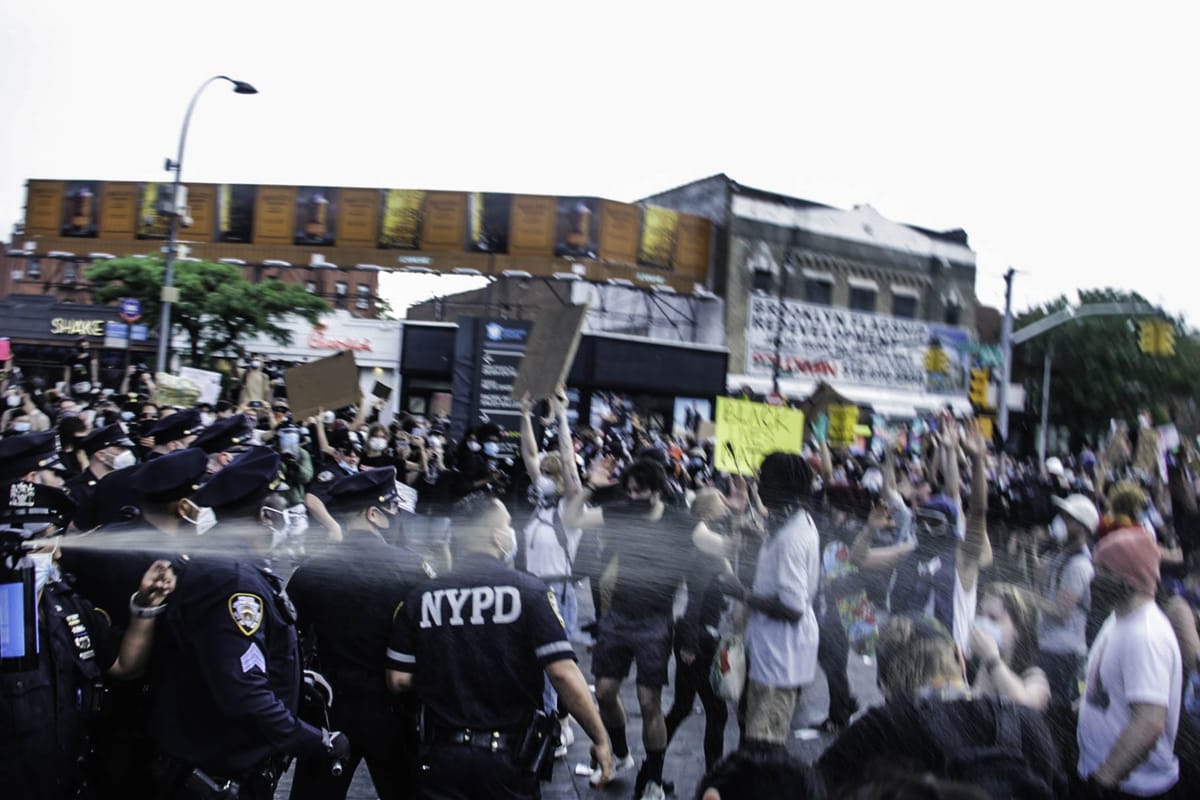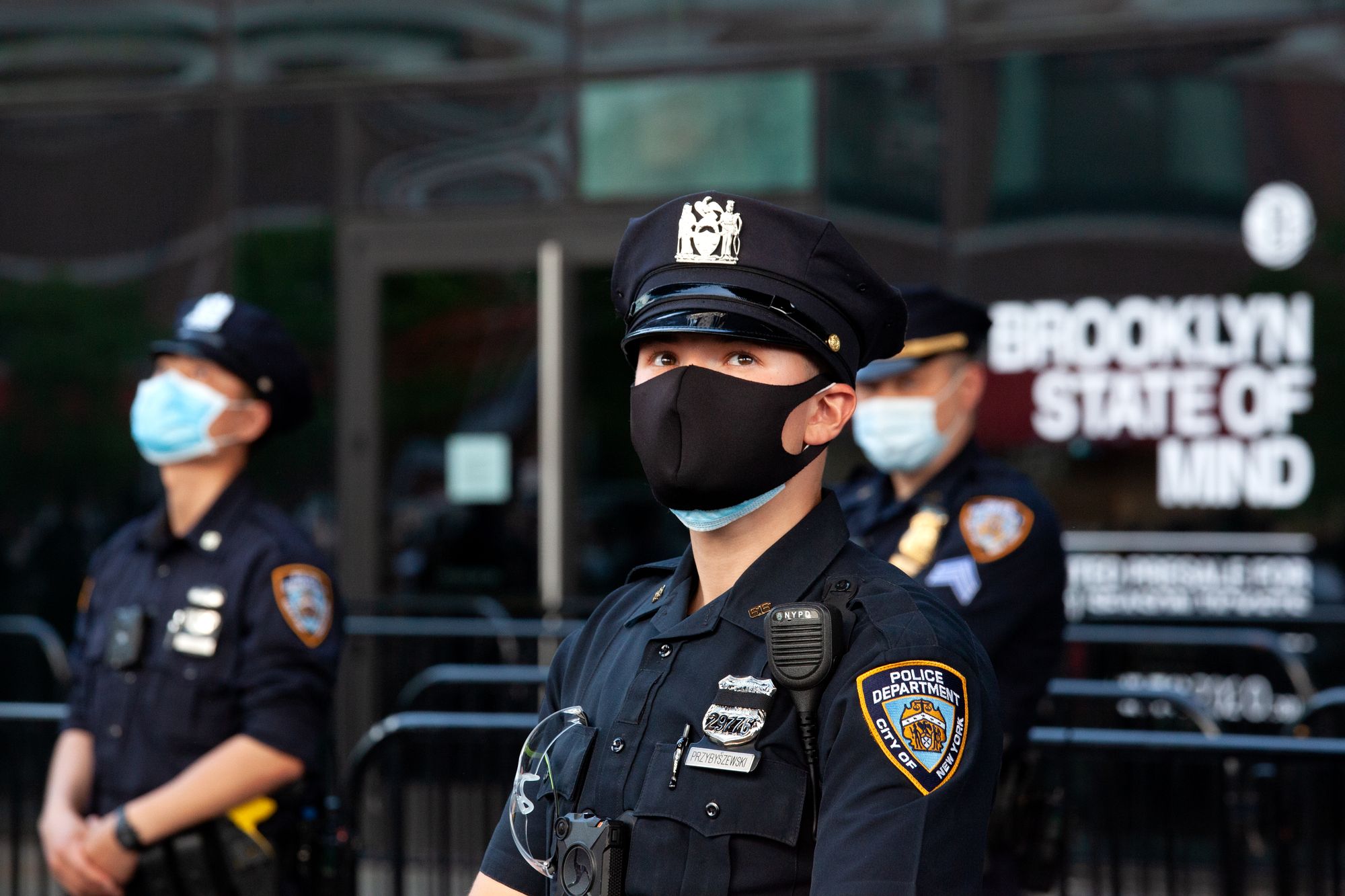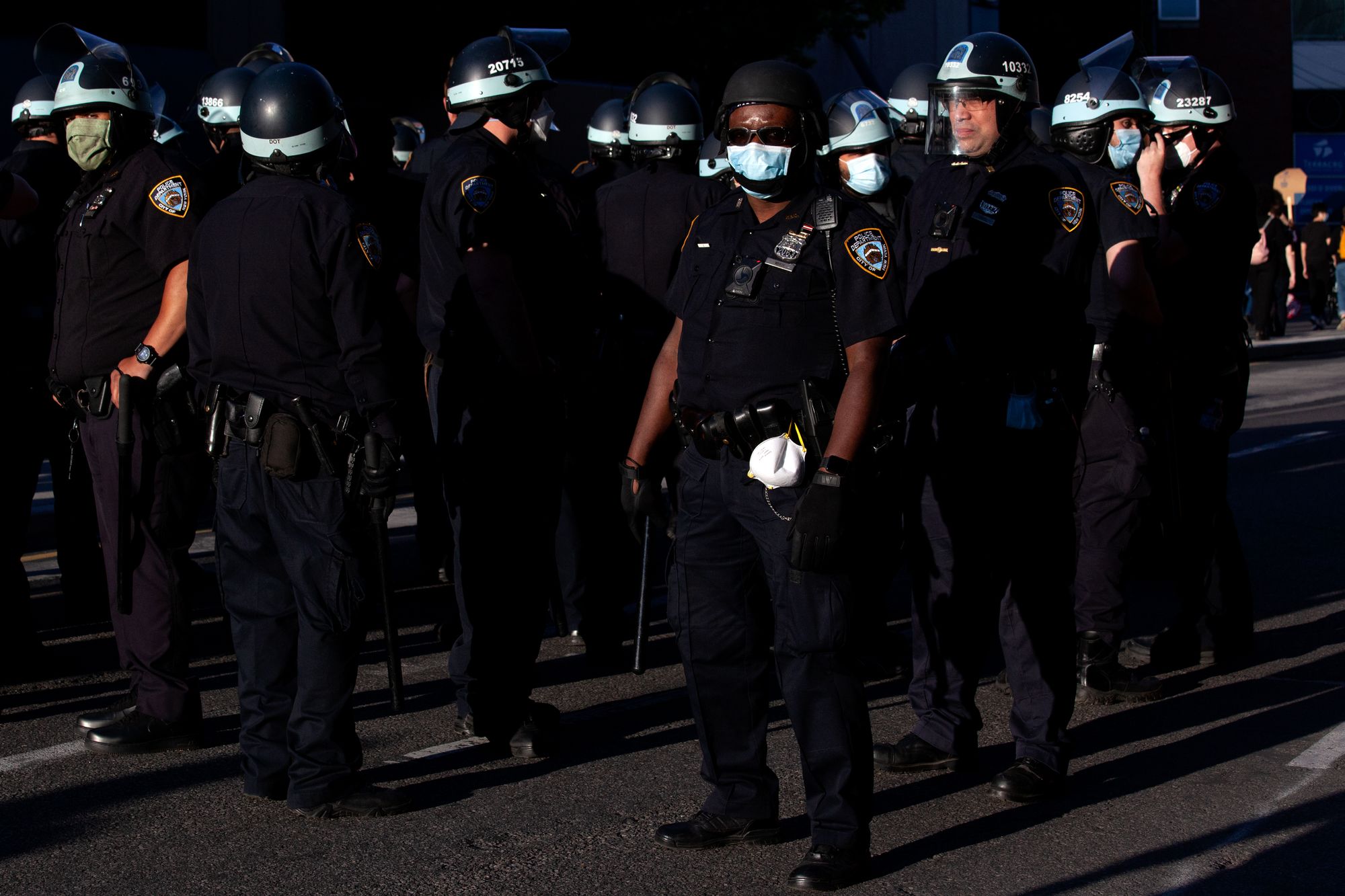Lawmakers Moving to Yank Covers Off Secret Police Disciplinary Records


By Josefa Velasquez, Greg B. Smith, and Yoav Gonen, Originally published in THE CITY
State lawmakers in New York are inching closer to repealing a law shielding police disciplinary records, several people familiar with the matter told THE CITY.
On Monday, Democrats in the State Senate and Assembly plan to hold a video conference meeting of their members to discuss the protests sparked by the death of George Floyd, a black Minnesota man killed by a white police officer who kneeled on his neck.
The discussions are expected to focus on protests and response from law enforcement — and in particular a longstanding state law, known as 50-a, that shields police personnel records from public view, legislative sources said.
Reversing past mayors’ practice, the administration of Mayor Bill de Blasio has interpreted 50-a as prohibiting disclosure of the results of disciplinary hearings against individual officers.
According to one legislative source who was not authorized to publicly speak on the matter, an informal poll of Democratic members of the Senate showed enough support to approve the repeal of the law, with at least 32 votes in favor of the measure.
That’s even though some of the 40 Democrats in the Senate represent relatively conservative areas outside of New York City where large numbers of police officers live.
Discussions over repealing 50-a — which shields the personnel records of police officers, firefighters and corrections officers — came to a head this weekend, as protests over Floyd’s death have turned violent in New York City and around the nation.
Disturbing Images
Videos posted to Twitter showed a police officer shoving a young woman to the ground in Brooklyn Friday. Other videos taken during protests on Saturday documented a pair of NYPD SUVs accelerating into a crowd on Flatbush Avenue in Brooklyn, and a police officer ripping the mask off a protestor whose hands were raised and pepper spraying him.
Two state legislators, Sen. Zellnor Myrie (D-Brooklyn) and Assemblywoman Diana Richardson (D-Brooklyn), who are black, were also pepper sprayed by law enforcement Friday. Myrie was subsequently handcuffed.
“I’ve seen those videos and those videos are truly disturbing. Some of the videos frankly are inexplicable to me,” Gov. Andrew Cuomo said Sunday.
At a news conference Saturday morning, Cuomo stopped just short of endorsing a full claw back of the 1976 law, instead throwing his support behind efforts to reform it.
“I would sign a bill today that reforms 50-a,” Cuomo said.
“I would sign it today. So the Legislature can now convene by Zoom, or however they do it, pass the bill, and I will sign it today. I can’t be clearer or more direct than that.”
Calls to repeal or rewrite the law intensified during the long years leading up to the 2019 administrative trial of NYPD Officer Daniel Pantaleo in connection with the 2014 chokehold death of Eric Garner. Pantaleo was found guilty and fired, in a rare disclosure of a trial’s outcome.

Police unions are pushing back, pointing to the current conflicts in the streets.
“Last night, we saw violent criminals targeting New York City police officers with bricks, brass knuckles and Molotov cocktails, for no reason other than the uniform we wear,” said Police Benevolent Association President Patrick Lynch in a statement Sunday. “It is inconceivable that Governor Cuomo would want to arm those extremists with confidential police personnel records, so that they bring their weapons to our front doors.”
City’s Narrow Interpretation
Assemblymember Danny O’Donnell (D-Manhattan), who first introduced a bill to repeal 50-a in 2015, said getting rid of the prohibition is a “pendulum [that] swings both ways” — unleashing records that could show an officer under scrutiny has a spotless past record.
“I think the most important thing going forward would be to try and increase trust between police forces and the people they police,” he told THE CITY, something he suggested 50-a repeal could help advance.
De Blasio also offered support for the repeal Sunday, but said a new law ought to “protect the personal information – the home address, the type of information about an individual police officer that is about their safety and security.”
O’Donnell said home addresses would not be released — calling the mayor’s remark “not a realistic thing.”
De Blasio has repeatedly called on Albany lawmakers to revisit 50-a — even as his own administration advanced a newly narrow interpretation of the law.
Legislative sources in Albany say de Blasio and his staff haven’t made a concerted effort to repeal the law.
Civil Rights Law 50-a specifically bars the release of “all personnel records used to evaluate performance” of police officers without the express written permission of the officer or without an order from a judge.

When the law was first proposed, the police union claimed the release of personnel information would subject its members to harassment and threats. Even at the time, critics questioned whether it would be used to hide misconduct.
For years, the NYPD informally allowed the press to review bare-bones records of substantiated disciplinary findings against cops. But in 2016 the de Blasio administration put a stop to that after police department lawyers decided this practice violated 50-a.
The public and press erupted at this reversal, asserting that this sudden opacity would prevent the public from seeing whether specific officers accused of misconduct had a history of bad behavior. The New York Civil Liberties Union sued to force the NYPD to resume releasing information on substantiated cases, but lost in court.
The only remedy was to change the law in Albany.
De Blasio’s Mixed Messages
De Blasio has repeatedly promised to push for unspecified 50-a reforms. In January 2019, a panel of law enforcement experts enlisted by then-NYPD Commissioner Jimmy O’Neill said that the existing “lack of transparency impedes the Department’s efforts to show the public that it holds officers accountable for their conduct.”
“The end result is a system that is understandably perceived by the public and others as gesturing towards some transparency, but ultimately remaining largely closed to any external scrutiny,” the panel wrote.
A month later, O’Neill said he would be speaking with legislators about crafting reforms. Since then, according to an Albany lobbyist involved in the discussions, the NYPD and de Blasio have made little to no effort to make that happen.
“The administration said they would be seeking reforms and then it was radio silence,” the lobbyist said. “The NYPD said they’d been up in Albany on this, but I have not had a single conversation with a legislator saying they’ve been approached by the NYPD or anyone in the de Blasio administration.”
In October, a police official testified at a Senate hearing that the NYPD continued to oppose a total repeal of 50-a, asserting that only substantiated findings regarding “serious police misconduct” should be subject to public disclosure.
“Minor misconduct, such as uniform infraction or lateness, should continue to maintain their 50-a protections,” testified Oleg Chernyavsky, assistant deputy commissioner for legal matters at the NYPD.
Total repeal “would extinguish an officer’s voice in a process centered on disclosure of their own personnel records and provide defense counsel access to records irrelevant to the case before the court.”
De Blasio made no mention of 50-a in his annual testimony on the state’s budget in Albany in February 2020 or in January 2017, according to transcripts of his prepared remarks.
He included calls to reform the law in his testimony in 2018 and 2019, transcripts show.
Olivia Lapeyrolerie, a de Blasio spokesperson, defended his efforts to overhaul 50-a.
“The mayor has been vocal about his calls for reform for the past three years — whether if it was while testifying up in Albany or in his innumerable conversations with state legislators,” she said.
THE CITY is an independent, nonprofit news outlet dedicated to hard-hitting reporting that serves the people of New York.




